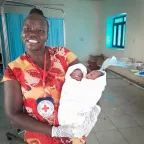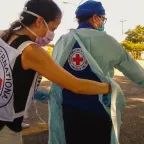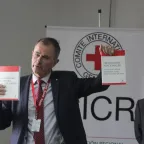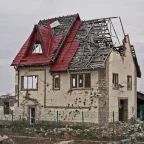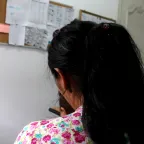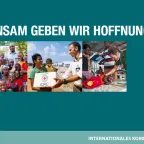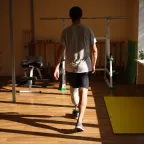South Sudan: Midwife’s heroic actions save mom and newborn twins
When Grace* arrived at the Maiwut Primary Health Care Centre in South Sudan's northeast region she was in extreme pain and distress. Little did she know that she was actually in labour and about to …

